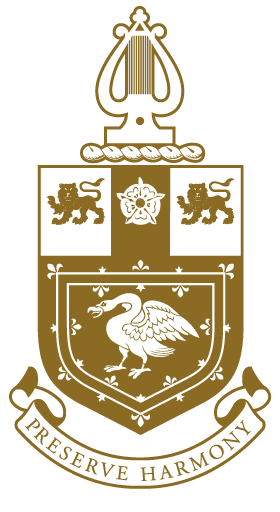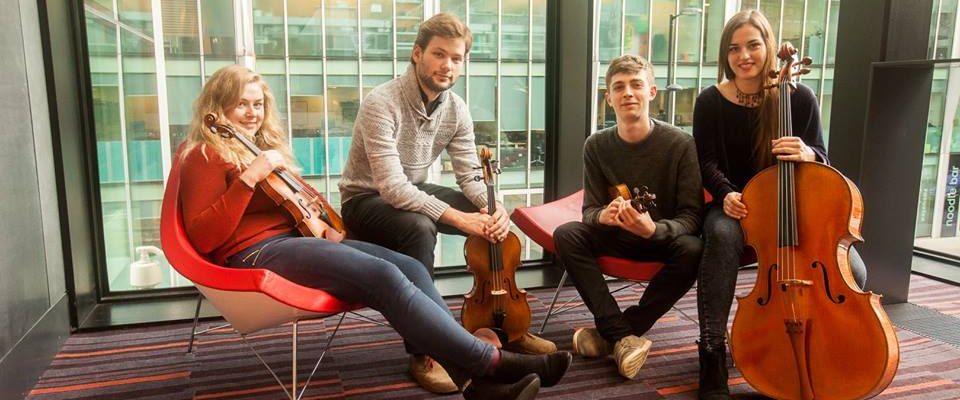Young Artist Interview: Elizabeth Rossiter
I grew up in a family of music lovers, though not trained musicians, and was lucky enough to be surrounded by beautiful sounds as a part of everyday life from when I was very young, as well as countryside, books and pictures. Some of my earliest memories are of my father turning up the volume on some big old speakers to play Wagner or Miles Davis so we could sit in the garden in the summer and listen, or of listening to Haydn Symphonies over Sunday lunch, or of the wonder I felt the first time I heard Lever du jour from Ravel’s Daphnis et Chloe when I was only as high as the kitchen cabinets. I couldn’t believe that someone could put into sound the sunrises I’d seen growing up, albeit in the Buckinghamshire countryside, and was immediately transported to Ravel’s vividly colourful and poetic version of a similar yet different world.
One of my first experiences of going to a concert was being taken to see the pianist Cecile Ousset perform a programme of French piano music, in a barn somewhere near home, and sitting on the front row looking up at her as she played Ravel’s Jeux d’eau. I couldn’t believe what I saw and heard, and from that moment I felt I had to play the piano and be surrounded by music. I never really made a decision to be a professional musician, it just seemed obvious and I was so lucky to have the support and encouragement to be able to do it.
I started piano lessons aged six with my local piano teacher, Sylvia Ingman. Whilst she didn’t really teach ‘technique’, what she did do was put a huge range of some of the best and most inspiring piano repertoire my way from an early age, and fill me with a love of music, and of playing and performing. I entered local festivals and competitions, and performed concerti with local and school orchestras until aged 18 when I went to the Royal Northern College of Music (RNCM) to study with Carole Presland, where a more serious training began.
Whilst I always loved the solo piano repertoire and worked hard at it, when I got to college I immediately searched out people with whom to play. Some of my most profound musical experiences during this time stemmed from the chamber music I played, the songs I accompanied, the orchestral piano parts I learned and all the musicians I came to know, and talking about and playing music with them. Having written a thesis about Messiaen’s Turangalila Symphonie and its ending on that F sharp added sixth chord, I became a Junior Fellow at RNCM, and shortly after completing the fellowship, moved to London.
The first period of time I spent in London was battling a playing injury. It was a difficult time, but looking back, one that informed both my playing and character hugely and very positively. I decided I’d like to teach whilst I couldn’t practise much, and found some students, setting myself to learning exactly how to play from a very specifically physically healthy perspective, and observed and thought deeply about it. This, in addition to a fantastic hand physiotherapist, lessons with the wonderfully inspiring Paul Roberts, and being doggedly determined, led me to apply very late to the accompanist course at Guildhall School of Music and Drama, to which I won a scholarship.
Inadvertently I ended up at Guildhall for four years, where I did huge amounts of performing, some inspired projects organised by pianists I hugely admire, won scholarships and prizes, learnt a lot of repertoire, formed some wonderful friendships and musical partnerships, and learned my craft, and most especially the craft of working with and playing for singers. I gave recitals all over the place, both in Britain and abroad, some planned very much in advance, some at the last minute, in competitions too, and enjoyed wonderfully inspiring lessons, some with my musical heroes. I became fascinated by the art of singing, and ended up training as a repetiteur, at first Guildhall and then rather by accident, National Opera Studio, in an attempt to understand it and further my love and curiosity of it.
Some of my most artistically formative experiences since then have included performing a programme of Debussy’s Proses lyriques and Poulenc at Wigmore Hall with the wonderful soprano, and fellow Yeoman, Anna Patalong; playing in the Ferrier Competition for the winner Natalya Romaniw; appearing on many occasions on BBC Radio 3; rehearsing and performing in a very little but beautiful and heartfelt production of Britten’s Turn of the Screw for the Grimebourne Festival in Dalston; and for a bigger production of Gianni Schicchi for Opera Holland Park; my spells as Samling Artist, and coaching younger singers for the Samling Academy; the languages I’ve learnt after time spent working in Germany and Italy, broadening my cultural and musical horizons and meeting more musicians from places other than Britain; performing as much new music as possible; and planning and playing recitals all over the place with the various wonderful singers and instrumentalists with whom I have come to collaborate with and feel inspired by on a musical and personal level.
In my daily life the thing I come back to playing most is Bach; being in regular touch with his keyboard music for me provides the clarity to play everything written since. I increasingly love to listen to music written recently, and to jazz, and to as much singing, and see as much opera, as I can.
Now I live in Islington, and very happily split my time between being a freelance pianist and teaching and working as a staff accompanist at Guildhall, whilst travelling for both work and pleasure. The village I grew up in Buckinghamshire, Penn, is the one that the famous pianist and accompanist Gerald Moore moved to when he retired, and where he died in 1987. Next year various singer friends and I hope to put on a series of song concerts in a thirty-year commemoration. I look forward to that, and many recitals up and down the country, and in France and Germany.
I’m so grateful for the support I’ve had over the years, both financially and artistically. Becoming a professional musician can be a lengthy path, and one with many challenges: artistically, financially, psychologically and physically, and requiring resilience and adaptability. But I don’t know of any way I’d rather spend my professional life and feel lucky to have chosen such an exciting, stimulating and constantly challenging and changing life.
My website is elizabethrossiter.com
and twitter @ejrossiter





